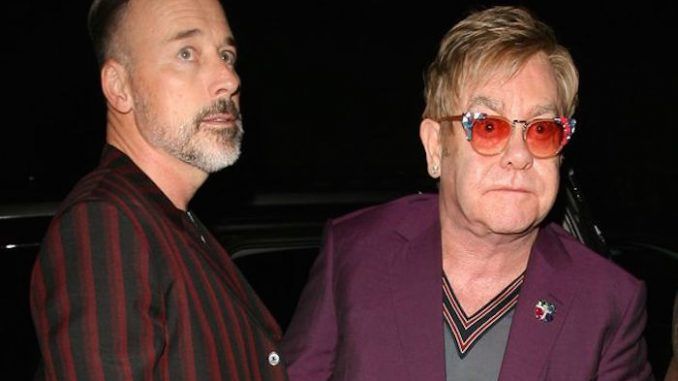
Britain’s most senior judges have ruled that Elton John and David Furnish’s super injunction will remain in force, preventing the English media from identifying the pair or publishing details about the celebrity threesome scandal.
Elton John took the case all the way to the Supreme Court, the highest court in the country, after the Court of Appeal ruled the super injunction could be lifted and the media should be free to report on the story.
However the Supreme Court ruled that the Court of Appeal was wrong, meaning the gagging order will remain in place until the case goes to trial late this year.

BYPASS THE CENSORS
Sign up to get unfiltered news delivered straight to your inbox.
You can unsubscribe any time. By subscribing you agree to our Terms of Use
‘There is no public interest in kiss and tell stories,’ said Lord Mance in handing down the decision.
The case has provoked critics of super injunctions to accuse the courts of blindfolding the public through the use of blanket suppression orders, curtailing free speech and the media’s right to report on what it sees fit.
While a ‘kiss and tell story’ may not be the most important story the media can be gagged from reporting on, these blanket suppression orders set a dangerous precedent.
Orwellian present
Can a country claim to have a free press if the media are bound and gagged by super injunctions?
The role of the media is to assist the functioning of democracy – to create a system of checks and balances on the ruling government and the elite. If the government is not doing a good job, or members of the elite are found to be corrupt, then it is the media’s job to report this to the people and the government or individuals can be held to
This is why corrupt regimes must always control the media – so their crimes, and the crimes of the elite, are not bought to public awareness.
It can be argued that in Britain, as well as other countries including the US, the media is now simply a subservient department of the government – taking orders, and towing the party line.
While a ‘kiss and tell story’ is far from the most serious issue that could be suppressed from public awareness, it sets a terrifying precedent and raises dark questions.
New laws enabling super injunctions have been snuck into British law. What else are these tools of social oppression being used for? What will they be used for in the future?
Who created super injunctions? Was it the judges?
Judges don’t make new laws – Parliament does. Super injunctions are controversial because judges must interpret exactly what Parliament means in a particular law.
In 2000 the European Convention on Human Rights became embedded in British law, creating a right to privacy enforceable by the courts. The new legislation simultaneously create a competing right to freedom of speech. Parliament said these two rights had to be balanced – and judges are left to work out where that balance lies.
As things stand, a judge like Lord Mance can decide that there is ‘no public interest’ in a case, and then the public will be banned from hearing about it. In a truly free media landscape and country, it would be the people deciding what interests them, not a member of the judicial establishment.


